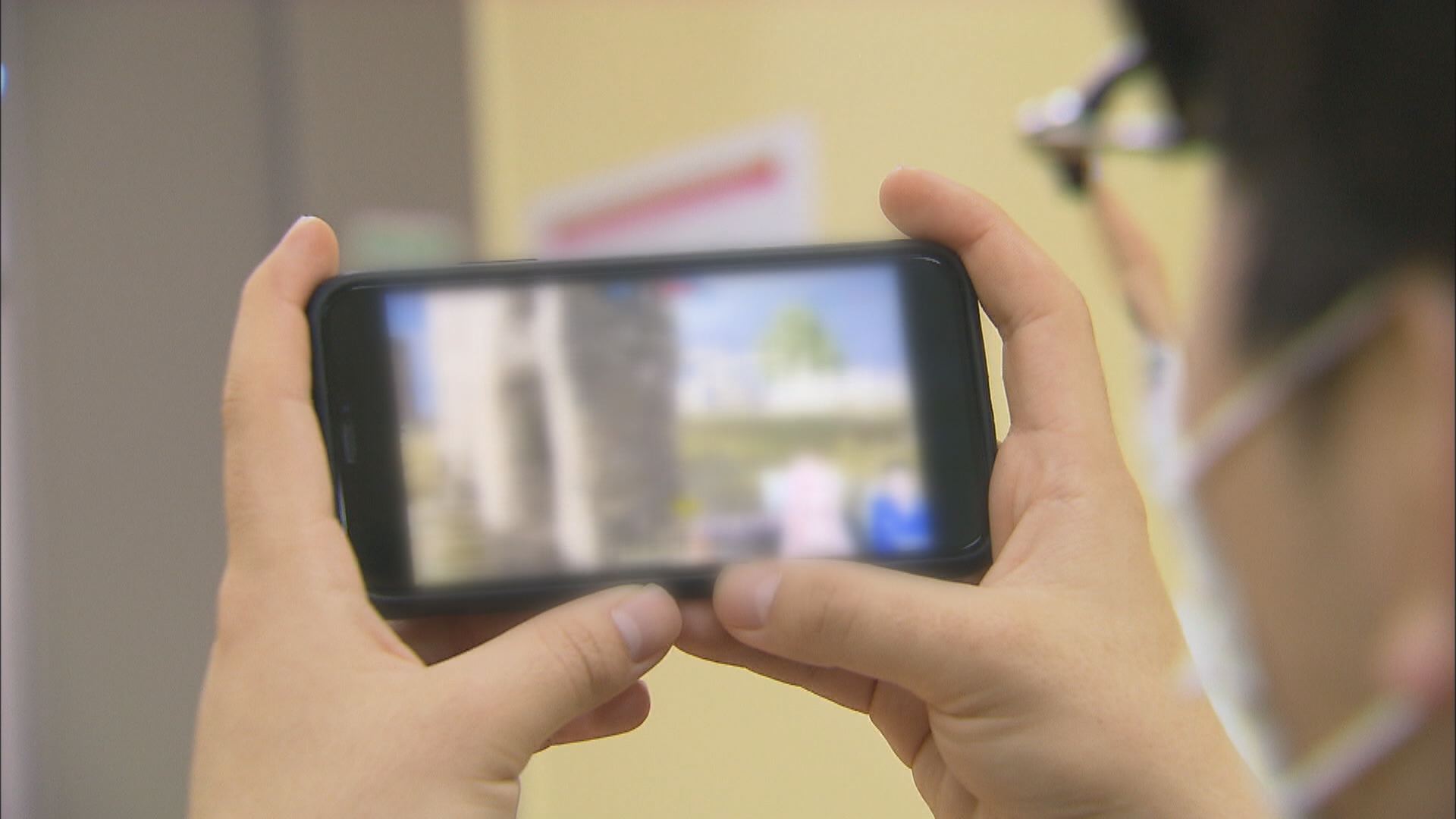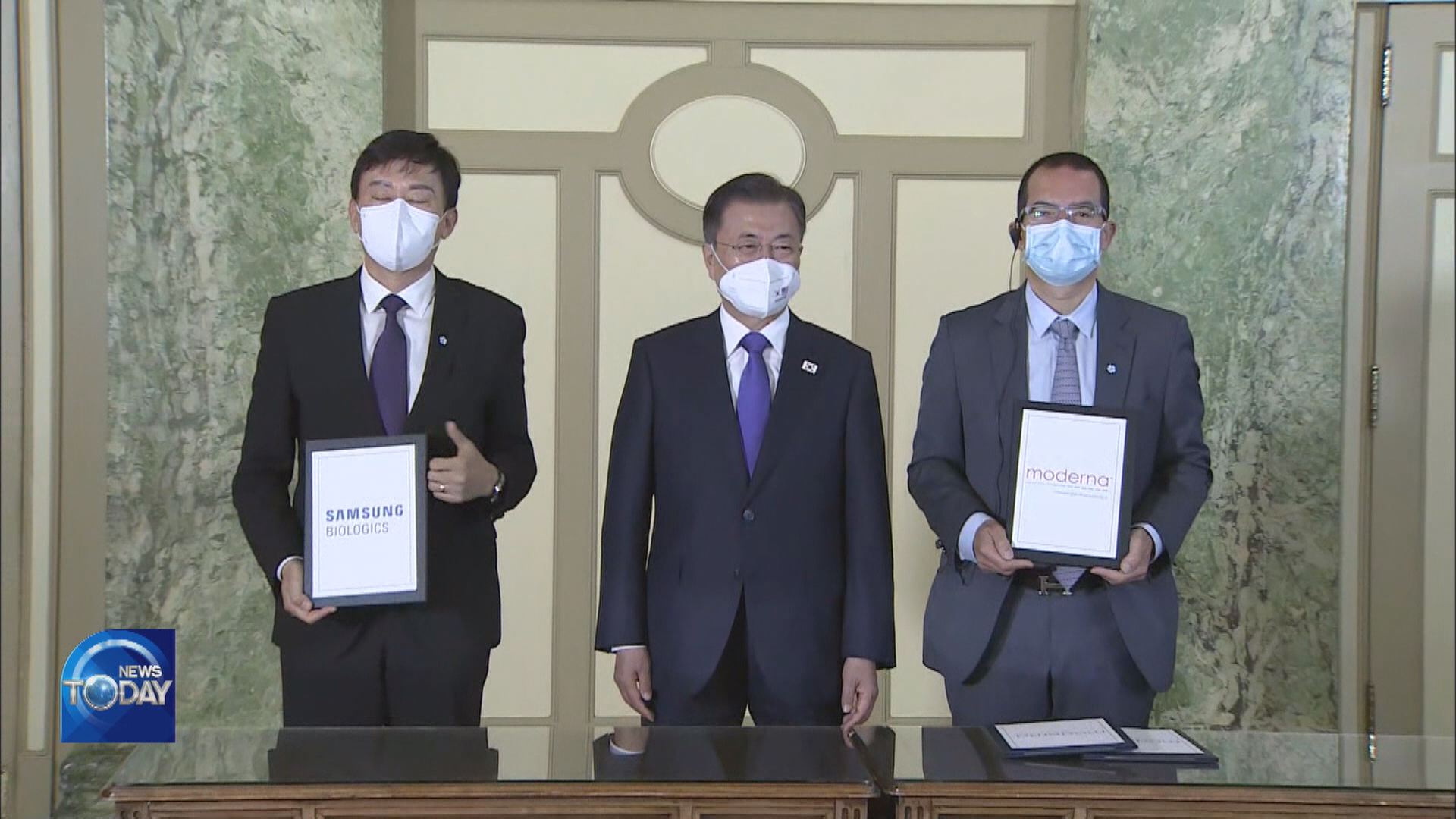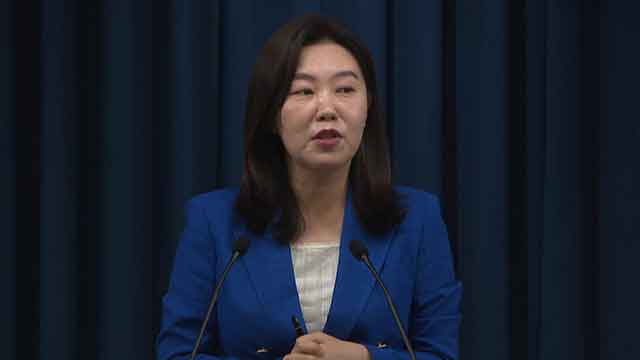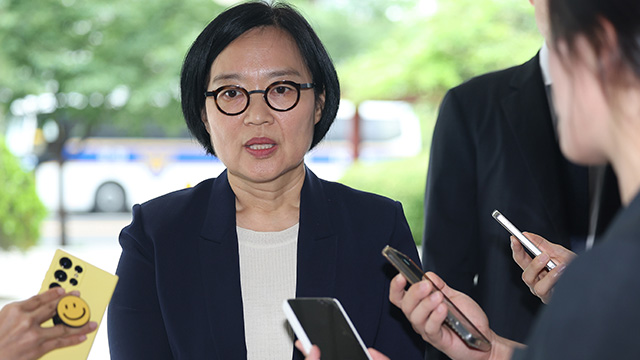TEENAGER'S INCREASE USE OF INTERNET
입력 2021.05.24 (15:05)
수정 2021.05.24 (16:47)
읽어주기 기능은 크롬기반의
브라우저에서만 사용하실 수 있습니다.
[Anchor Lead]
Two out of ten teenagers in Korea are found to rely excessively on the internet or smartphone as the prolonged pandemic forces them to stay home for a longer period of time.
[Pkg]
A student that started middle school this year. As there are more online classes these days, he spends more time in front of the computer.
[Soundbite] 7th Grader(Seoul Resident) : "I’m online for about 5~6 hours a day. I use the messenger service on my phone during class. I sometime stay up until 2 a.m."
The Ministry of Gender Equality and Family surveyed some 1.2 million adolescents nationwide on their use of electronic devices. 228,000 or 18% of the respondents were found to be at risk of being overly dependent on the internet or smartphones. That translates to one out of five or six teenagers experiencing withdrawal symptoms or are unable to control the duration of device usage on their own. This year, the risk of internet overuse increased while that of smartphone overdependence decreased. There was also a spike in the number of online addicts who require professional help because they find it hard to lead normal daily lives.
[Soundbite] Kim Seong-byeok(Ministry of Gender Equality and Family) : "Most online classes are provided on their personal computers. So the number of heavy internet users grew as people stayed home more."
Seventh graders accounted for 40% of the heavy users group. The number of heavy users in elementary school also shot up as the average age of smartphone users became lower in recent years. More high-risk users were found in lower grades for male students and higher grades for female students.
[Soundbite] Choi Seong-yu(Ministry of Gender Equality and Family) : "Older female students probably used the internet and smartphone heavily because their social interactions take place mostly on those platforms."
The Ministry of Gender Equality and Family provides individual counseling as well as assistance with hospital treatment when students are found to be suffering from select conditions. The ministry also plans to strengthen education for parents so they can teach proper internet usage at home.
Two out of ten teenagers in Korea are found to rely excessively on the internet or smartphone as the prolonged pandemic forces them to stay home for a longer period of time.
[Pkg]
A student that started middle school this year. As there are more online classes these days, he spends more time in front of the computer.
[Soundbite] 7th Grader(Seoul Resident) : "I’m online for about 5~6 hours a day. I use the messenger service on my phone during class. I sometime stay up until 2 a.m."
The Ministry of Gender Equality and Family surveyed some 1.2 million adolescents nationwide on their use of electronic devices. 228,000 or 18% of the respondents were found to be at risk of being overly dependent on the internet or smartphones. That translates to one out of five or six teenagers experiencing withdrawal symptoms or are unable to control the duration of device usage on their own. This year, the risk of internet overuse increased while that of smartphone overdependence decreased. There was also a spike in the number of online addicts who require professional help because they find it hard to lead normal daily lives.
[Soundbite] Kim Seong-byeok(Ministry of Gender Equality and Family) : "Most online classes are provided on their personal computers. So the number of heavy internet users grew as people stayed home more."
Seventh graders accounted for 40% of the heavy users group. The number of heavy users in elementary school also shot up as the average age of smartphone users became lower in recent years. More high-risk users were found in lower grades for male students and higher grades for female students.
[Soundbite] Choi Seong-yu(Ministry of Gender Equality and Family) : "Older female students probably used the internet and smartphone heavily because their social interactions take place mostly on those platforms."
The Ministry of Gender Equality and Family provides individual counseling as well as assistance with hospital treatment when students are found to be suffering from select conditions. The ministry also plans to strengthen education for parents so they can teach proper internet usage at home.
■ 제보하기
▷ 카카오톡 : 'KBS제보' 검색, 채널 추가
▷ 전화 : 02-781-1234, 4444
▷ 이메일 : kbs1234@kbs.co.kr
▷ 유튜브, 네이버, 카카오에서도 KBS뉴스를 구독해주세요!
- TEENAGER'S INCREASE USE OF INTERNET
-
- 입력 2021-05-24 15:05:48
- 수정2021-05-24 16:47:01

[Anchor Lead]
Two out of ten teenagers in Korea are found to rely excessively on the internet or smartphone as the prolonged pandemic forces them to stay home for a longer period of time.
[Pkg]
A student that started middle school this year. As there are more online classes these days, he spends more time in front of the computer.
[Soundbite] 7th Grader(Seoul Resident) : "I’m online for about 5~6 hours a day. I use the messenger service on my phone during class. I sometime stay up until 2 a.m."
The Ministry of Gender Equality and Family surveyed some 1.2 million adolescents nationwide on their use of electronic devices. 228,000 or 18% of the respondents were found to be at risk of being overly dependent on the internet or smartphones. That translates to one out of five or six teenagers experiencing withdrawal symptoms or are unable to control the duration of device usage on their own. This year, the risk of internet overuse increased while that of smartphone overdependence decreased. There was also a spike in the number of online addicts who require professional help because they find it hard to lead normal daily lives.
[Soundbite] Kim Seong-byeok(Ministry of Gender Equality and Family) : "Most online classes are provided on their personal computers. So the number of heavy internet users grew as people stayed home more."
Seventh graders accounted for 40% of the heavy users group. The number of heavy users in elementary school also shot up as the average age of smartphone users became lower in recent years. More high-risk users were found in lower grades for male students and higher grades for female students.
[Soundbite] Choi Seong-yu(Ministry of Gender Equality and Family) : "Older female students probably used the internet and smartphone heavily because their social interactions take place mostly on those platforms."
The Ministry of Gender Equality and Family provides individual counseling as well as assistance with hospital treatment when students are found to be suffering from select conditions. The ministry also plans to strengthen education for parents so they can teach proper internet usage at home.
Two out of ten teenagers in Korea are found to rely excessively on the internet or smartphone as the prolonged pandemic forces them to stay home for a longer period of time.
[Pkg]
A student that started middle school this year. As there are more online classes these days, he spends more time in front of the computer.
[Soundbite] 7th Grader(Seoul Resident) : "I’m online for about 5~6 hours a day. I use the messenger service on my phone during class. I sometime stay up until 2 a.m."
The Ministry of Gender Equality and Family surveyed some 1.2 million adolescents nationwide on their use of electronic devices. 228,000 or 18% of the respondents were found to be at risk of being overly dependent on the internet or smartphones. That translates to one out of five or six teenagers experiencing withdrawal symptoms or are unable to control the duration of device usage on their own. This year, the risk of internet overuse increased while that of smartphone overdependence decreased. There was also a spike in the number of online addicts who require professional help because they find it hard to lead normal daily lives.
[Soundbite] Kim Seong-byeok(Ministry of Gender Equality and Family) : "Most online classes are provided on their personal computers. So the number of heavy internet users grew as people stayed home more."
Seventh graders accounted for 40% of the heavy users group. The number of heavy users in elementary school also shot up as the average age of smartphone users became lower in recent years. More high-risk users were found in lower grades for male students and higher grades for female students.
[Soundbite] Choi Seong-yu(Ministry of Gender Equality and Family) : "Older female students probably used the internet and smartphone heavily because their social interactions take place mostly on those platforms."
The Ministry of Gender Equality and Family provides individual counseling as well as assistance with hospital treatment when students are found to be suffering from select conditions. The ministry also plans to strengthen education for parents so they can teach proper internet usage at home.
이 기사가 좋으셨다면
-
좋아요
0
-
응원해요
0
-
후속 원해요
0












![[영상] 정진우 서울중앙지검장 첫 출근…<br>“신뢰받는 검찰 되도록 노력”](/data/fckeditor/vod/2025/07/04/305901751621912095.png)




이 기사에 대한 의견을 남겨주세요.